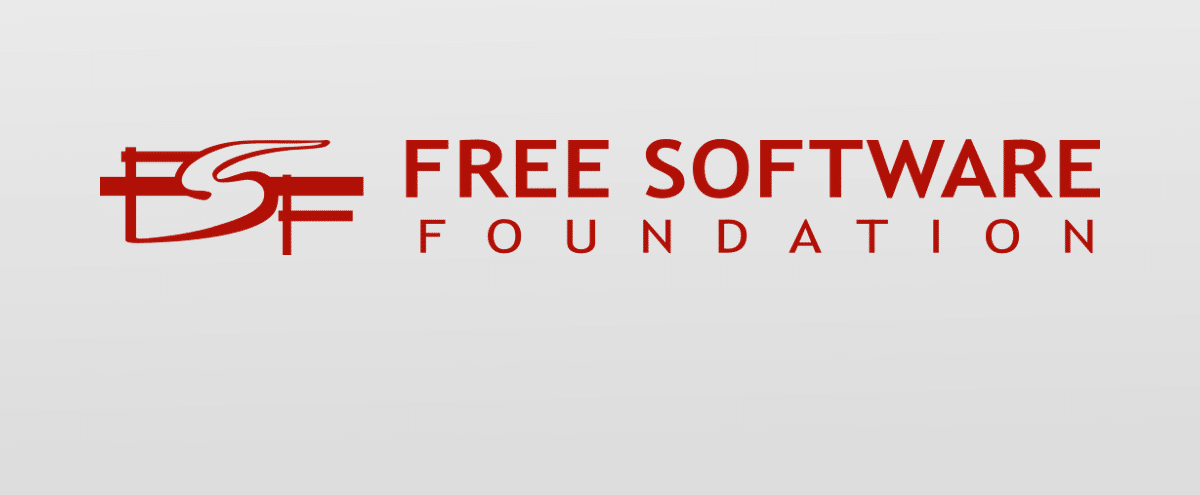
The Free Software Foundation is an organization whose purpose is to spread this movement
Recently Drew DeVault, the hacker behind SourceHut and many other open source projects, shared a blog post in which he explains his perspective about the decline of the Free Software Foundation.
And it is that after more than 40 years of existence, Drew DeVault he thinks the FSF is dying. If the blogger acknowledges that the FSF has contributed to some extent to the advancement of the free software movement, however, he maintains that the foundation has failed in its main mission.
To understand Drew DeVault's article a bit, we must remember that the free software movement started in the 1980s by Richard M. Stallman (RMS), to which we can attribute that today there is more free software than ever before and practically all new software contains free software components.
To reach such a level of expansion, the Free Software Foundation (FSF) created in 1985 by Stallman has played an important role through its mission to promote the freedom of users with computers.
Some arguments from Drew DeVault to explain the ongoing death of the FSF are based on the fact that the Free Software Foundation must:
- Spread the philosophy of free software
- Develop, publish and promote copyleft licenses
- Monitoring the health of the free software movement.
And according to DeVault, since lThe foundation failed in its main mission, now you are spending your resources on distractions. To make himself better understood, he explains, for example, that in his role as thought leader of philosophy free software, the FSF message is limited in scope. The organization's messages are muted, ineffective and myopic. The pages of dense philosophical essays and poorly organized FAQs do not provide a useful entry point or reference for the community. For DeVault, the message cannot be propagated like this.
Notions like copyleft and software are misunderstood by the public. The family of GPL licenses that is essential to the free software movement is poorly understood by the public, despite the accompanying 16.000-word FAQ. DeVault also argues that the FSF does not understand its place in the larger world or its relationship to the progressive movements taking place in the ecosystem and beyond. For him, the foundation does not cater to new community leaders (such as those in the free open source software community), leaving them to form institutions that are insular and weak among themselves, without a central direction, and leaving us vulnerable to exploiting growing movements such as open kernel and trademark attacks against free and open source software.
Some solutions that Drew DeVault proposed to bring the FSF out of its torpor, the following changes:
- Reform management: it's time for Richard Stallman to go…The current leadership, particularly that of RMS, creates an atmosphere of exclusion in a place where inclusion and representation are important to the success of the movement.
- Reform the institution: the FSF must correct its short-sighted view of the ecosystem, reach out to emerging leaders in the free software world and ask them to take up the FSF's mission… If the FSF still wants to be part of the movement, it must recognize and empower the leaders who promote the cause.
- Rephrase the message: people depend on the FSF to establish a solid foundation in free software philosophy and practices within the community, and the FSF doesn't provide that.
- Unlink the FSF from the GNU Project: The GNU Project represents a small fraction of the current free software ecosystem, and the Free Software Foundation needs to be independent of any particular project and focus on the health of the ecosystem as a whole.
- Develop new copyleft licences: The GPL family of licenses has served us well, but we need to do better. The best copylefted license today is the MPL, whose concise form and accessible language surpass the GPL in many respects. However, it does not provide a complete answer to copyleft needs, and new licenses are needed to fill other market niches; the FSF should write these licenses…
Finally, if you are interested in knowing more about it, you can consult the details In the following link.
You had me until the word "Inclusion" appeared, when I read or listen to it the same thing happens to me as to a certain nefarious character when he heard the word culture.
Inclusion is not programmed, it is practiced.
The main problem with the FSF is that it spends more time criticizing proprietary software and its products than developing things that people want to use.
I agree, I don't see what else to add